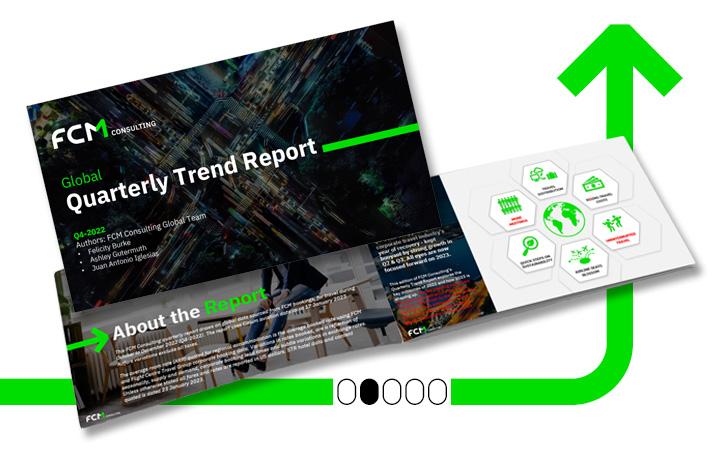
Travel trends for the construction industry
The release of the FCM Consulting Global Quarterly Trend Report Q4-2022 includes some good news and not so good news for companies in the construction sector with a corporate travel program.
On the positive side there’s loads more airline seats available and airline flight capacity, very few quarantine and testing measures still in place and a greater focus on the traveller experience.
On the flip side, companies are going to see high prices for air travel and accommodation for the first six months of 2023 as demand continues to skyrocket.
According to the report, North America will be leading the charge on airline capacity recovery in the first quarter of 2023, sitting at 101% of 2019 volume. Airfares are also staying strong with global international business class fares in 2022 on average 15% more than 2019. Discount economy class fares were on average 12% higher in 2022 than they were in 2019.
With this in mind, here are a few other travel trends the building and construction industry should be aware of.
Changes for air and hotel contracts
Airlines and hotels have been forced to reassess their contracting arrangements following the pandemic. As a result, the contracting environment has well and truly shifted. Airline contracts have changed, so make sure you’re reading the fine print with regards to items such as:
- Spend thresholds
- NDC (new distribution channel) requirements
- Non-performance penalties
- Change requests.
In the hotel space, FCM Consulting has seen a 45% increase in the use of Non-Last Room Availability (NRLA rates). With demand for accommodation on the up and hotel occupancy in most countries (except Mainland China) sitting at or above 80%, it’s important to keep an eye on your contracts. Otherwise, you may end up paying rates up to $30 more, depending on the hotel and city.
Hotel rates stabilise
Domestic hotel rates in Australia in the final quarter of 2022 were a mixed bag. Rates reduced on average by about -3% on Q3, with reductions in Brisbane, Sydney and Geraldton. Places like Kalgoorlie had an average rate hike of +10% and Auckland was up a staggering +24% on Q3.
Just like the construction industry, the travel sector continues to grapple with labour shortages. This was the biggest challenge for hotels in 2022, which is set to continue into 2023.
Attracting, retaining and training staff is paramount to any successful hotel. With operating costs making up 50% of labour costs, increasing salaries to attract talent is only an option if such costs can be passed on to the end consumer. But without adequate staffing, the guest experience is compromised.
More energy spent on managing travel budgets
With forecasts indicating travel cost increases, construction firms need to make sure they’re spending their travel dollars wisely. This means working with FCM or your TMC to find opportunities to save or at least contain costs. Corporates will be encouraged to look at their buying behaviour, processes and management of everything from air and hotel contracts to air credit management and out-of-policy expenses. A good starting point is to check whether you’re buying best fare or rate of the day and if your travellers need to be travelling during off-peak time rather than high-peak periods when travel costs more.
The traveller experience gets a boost
Now the global travel industry is getting things back in order and up and running, suppliers are finally coming up for air. Air, hotel and car hire operators will be breathing new life into the traveller experience in 2023 - looking at ways to make travel options more personal and tailored. The ‘traveller-first’ mentality will filtrate through the corporate travel experience from new distribution channel (NDC) content from airlines to more personalised hotel experiences driven by smart technology and traveller-centric travel programs designed to keep travellers happy, healthy and comfortable.
